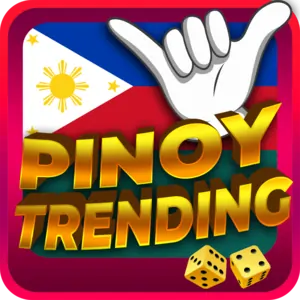Donald Trump, on the first day of his second term, reignited global debate by signing an executive order to withdraw the US from the Paris Agreement. Indeed, Trump Pulls US Out of Paris Agreement Again. What does this decision mean for climate action, global diplomacy, and America’s future? Let’s explore the full picture. 🌡️

Advertisement:

Trump Pulls the US Out of the Paris Agreement Again: What It Means 🌍
Table of Contents
🌏 What is the Paris Agreement?
The Paris Agreement, adopted in 2015 at a United Nations climate summit in Paris, is a landmark global treaty where nearly 200 countries pledged to work together to:
- Limit Global Warming: Keep global temperature rise well below 2°C, preferably to 1.5°C.
- Cut Greenhouse Gas Emissions: Reduce climate pollution through national goals.
- Enhance Resilience: Help nations adapt to the changing climate and mitigate risks like extreme weather.
While the agreement set an ambitious direction for climate action, it is non-binding. Each country creates its own targets and strategies, and there are no legal penalties for missing them.
🌡️ Why Is the Paris Agreement So Crucial?
The world crossed a critical threshold in 2024—1.5°C of global warming. Scientists warn that surpassing this temperature:
- Accelerates Climate Disasters: Increases the frequency and intensity of hurricanes, wildfires, droughts, and floods.
- Limits Adaptation: Makes it harder for ecosystems and societies to adapt.
- Rises Costs: Results in economic damages from destroyed infrastructure, food shortages, and inflation.
The stakes couldn’t be higher. By working together, countries aim to prevent catastrophic changes to the planet.
The US and the Paris Agreement
A Tumultuous History
The US has played a pivotal role in the Paris Agreement, but its participation has been far from stable:
| Year | Administration | Action |
|---|---|---|
| 2015 | Obama Administration | US helped draft and adopt the agreement. |
| 2017 | Trump Administration | Announced intent to leave the agreement. |
| 2020 | Trump Administration | Officially withdrew from the agreement. |
| 2021 | Biden Administration | Rejoined the Paris Agreement. |
| 2025 | Trump Administration | Announced withdrawal again. |
🚨 Trump’s Decision to Leave the Paris Agreement
On January 20, 2025, President Trump signed an executive order to pull the US out of the Paris Agreement for a second time.
His Justifications:
- Economic Burden: Claimed the agreement unfairly hurt American industries, especially fossil fuels.
- Energy Independence: Stated that US energy production should not be limited by international agreements.
- Skepticism of Climate Science: Questioned the urgency of climate change and argued the agreement was ineffective.
🌍 Implications of the Withdrawal
For the United States:
- Global Leadership at Risk
- The US risks losing its position as a global leader in climate diplomacy.
- Rival nations, such as China, could fill the void and gain influence.
- Economic Consequences
- Ignoring the clean energy boom (valued at $2 trillion globally) could leave the US lagging in renewable energy markets.
- Climate-related disasters, like hurricanes and wildfires, may escalate, increasing recovery costs.
- Policy Instability
- Frequent policy reversals (joining, leaving, rejoining) undermine international confidence in the US’s commitments.
For Global Climate Action:
- Funding Gaps
- The US was a major contributor to the Green Climate Fund, which supports developing nations in combating climate change.
- Reduced funding could jeopardize critical climate programs.
- Ripple Effects
- Other countries may weaken their commitments, fearing a lack of global unity.
- Missed Targets
- With the US being one of the largest emitters of greenhouse gases, its absence makes the global 1.5°C target harder to achieve.
🌐 Global Response
United Nations’ Stance
UN Climate Change Executive Secretary Simon Stiell responded:
- “The door remains open.” The US can rejoin the Paris Agreement in the future.
- Emphasized the global clean energy boom and warned: “Ignoring it only sends vast wealth to competitor economies, while climate disasters worsen.”
Economic Realities
The clean energy transition is accelerating worldwide, creating millions of jobs. Countries embracing renewable energy are reaping the benefits, while those relying on fossil fuels risk falling behind.
🇺🇸 Can the US Rejoin the Paris Agreement?
Yes, the US can reenter the Paris Agreement. However, there are challenges:
- A Heritage Foundation recommendation proposes exiting the broader United Nations treaty governing the agreement. This could complicate future reentry.
- The longer the US delays, the more difficult it will be to catch up with global progress.
FAQs
What is the Paris Agreement?
The Paris Agreement is a global climate pact where nearly 200 countries pledged to limit global warming to well below 2°C, ideally 1.5°C.
Why did Trump withdraw from the Paris Agreement?
Trump cited economic concerns, a desire for energy independence, and skepticism about climate science as reasons for leaving.
How does the US withdrawal affect global climate efforts?
The US’s exit weakens global cooperation, reduces funding for climate initiatives, and makes achieving the 1.5°C target more difficult.
Can the US rejoin the Paris Agreement?
Yes, the US can rejoin, but repeated withdrawals erode trust and make reentry more complex.
🌟 Key Takeaways
- The Paris Agreement is crucial for combating climate change, but the US’s fluctuating participation weakens its global impact.
- Trump’s withdrawal prioritizes short-term economic gains over long-term sustainability.
- The global clean energy transition is inevitable—countries that resist risk falling behind economically and environmentally.
Disclaimer
Pinoy Trending does not own the content provided in this article. This information is for educational and informational purposes only, based on publicly available sources. For official policies and legal interpretations, please consult relevant government or legal authorities.
References
- United Nations Framework Convention on Climate Change (UNFCCC). https://unfccc.int
- The Paris Agreement Official Document. https://www.un.org
- UN Climate Change Statements (Simon Stiell).
- Green Climate Fund Contributions Report (2024).
- Heritage Foundation – Project 2025 Policy.
- Reuters – US Climate Policy Updates.
- The Lancet – Climate Action and Economic Implications.
Josh is a seasoned content writer and journalist with over 15 years of experience creating impactful, accurate, and engaging content across industries like technology, healthcare, finance, and media. He specializes in translating complex topics into clear, accessible narratives and excels in technical documentation, editorial writing, and marketing materials.
A skilled journalist, Josh delivers in-depth features and articles that resonate with readers. Known for his attention to detail, research skills, and reliability, he is dedicated to producing high-quality content that informs, educates, and inspires.


